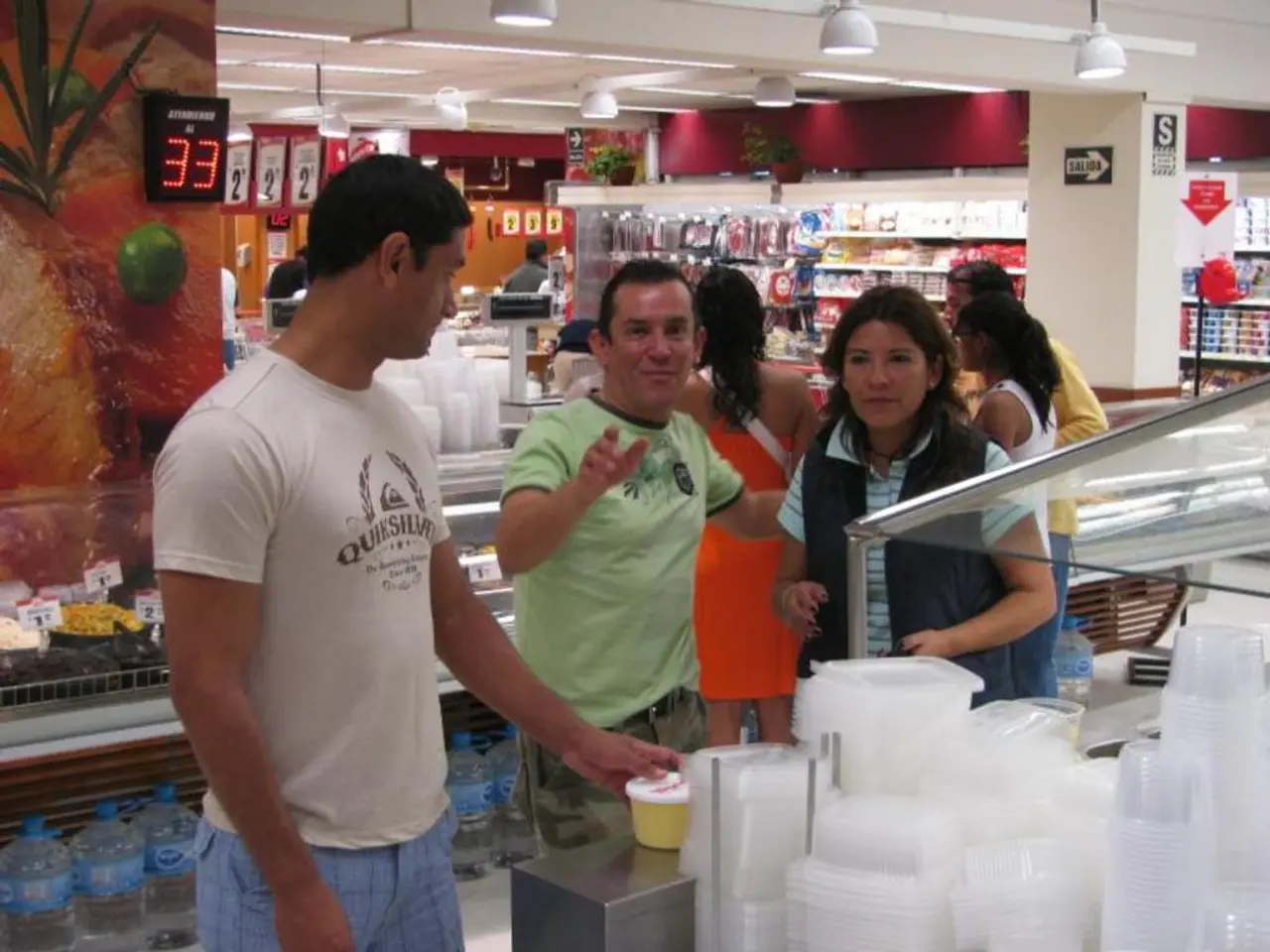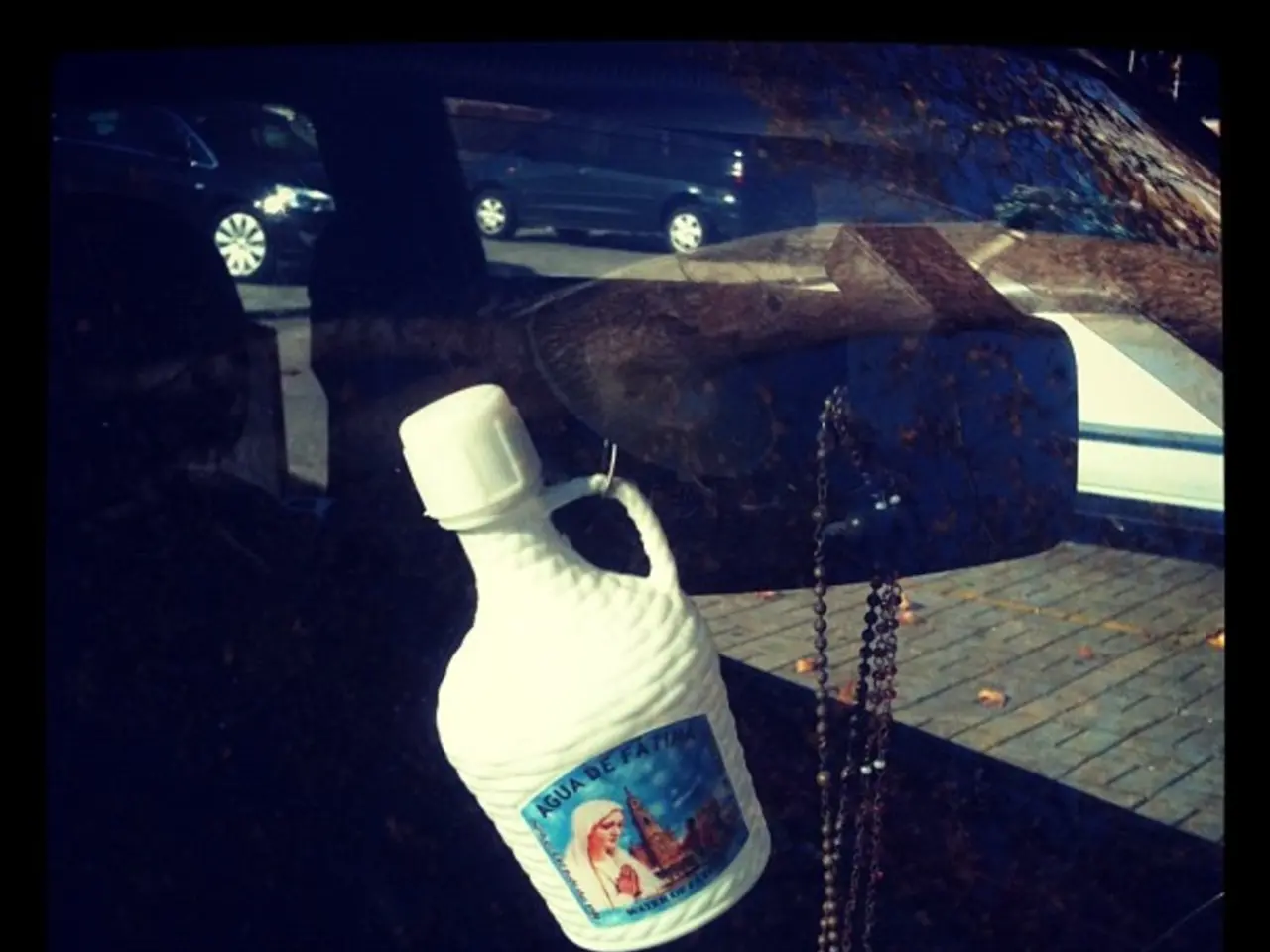NRW boosts support for businesses in the steel sector
In a bid to address the pressing issues facing Germany's steel industry, North Rhine-Westphalia (NRW) is hosting a Steel Summit. The event is part of a broader initiative to swiftly implement the European Steel and Metals Action Plan (ESMAP), which aims to tackle challenges such as global overcapacity, import pressure, underutilized production, and the need for robust trade defense to protect local producers.
The Steel Summit, supported by other German states, will focus on securing the future competitiveness and sustainability of the steel sector. Key players like ThyssenKrupp Steel and Krupp Mannesmann steelworks, significant steel producers in NRW, will be at the forefront of discussions.
The NRW resolution, backed by the Bundesrat, calls for immediate action at the federal and EU levels to execute ESMAP. This includes measures to enforce foreign trade defense and promote sustainable industrial practices. This aligns with NRW’s strategic focus on maintaining industrial strength while transitioning to climate-neutral operations.
The potential impact on ThyssenKrupp Steel and Krupp Mannesmann includes protection from import surges and market volatility through trade defense mechanisms, encouragement of modernization and circular economy principles to ensure environmental compliance, and securing local jobs by improving competitiveness within Europe’s evolving regulatory landscape.
Moreover, NRW's industrial policy supports the integration of circular economy models and climate-neutral production technologies, which could influence steelworks operations and investment decisions.
The Steel Summit serves as a platform for policy coordination among federal and regional governments and a stakeholder forum including industry and unions. It aims to drive strategic adaptation and sustainable competitiveness for steel producers in North Rhine-Westphalia.
Meanwhile, SPD politician Sonja Bongers has expressed concern about the entry of EP Corporate Group a.s. into ThyssenKrupp Steel. This move has caused uncertainty among the workforce of ThyssenKrupp Steel, Krupp Mannesmann steelworks (HKM), and the steel industry as a whole. Bongers, who is historically linked to Oberhausen where many ThyssenKrupp employees hail from, wants to ensure that the well-paid industrial jobs at ThyssenKrupp in Oberhausen are maintained.
In a bid to secure the future of ThyssenKrupp Steel Europe AG and HKM, Bongers plans to hold a steel summit by July 2024 to discuss a joint path for maintaining and modernizing steel production and securing jobs and sites in North Rhine-Westphalia. This approach, according to Bongers, can ensure far-reaching site, employment, and plant security for ThyssenKrupp Steel Europe AG and HKM.
[1] NRW Ministry for Economic Affairs, Innovation, Digitisation and Energy. (2022). Steel Summit North Rhine-Westphalia. Retrieved from https://www.wi-nrw.de/en/topics/steel-summit-north-rhine-westphalia-452357
[2] German Aluminium Association. (2021). German Aluminium Summit 2021. Retrieved from https://www.aluminium-verband.de/en/events/german-aluminium-summit-2021-27185
[3] European Steel Association. (2021). European Steel and Metals Action Plan. Retrieved from https://www.eurofer.eu/policy-topics/esmap/
- The steel industry, a significant aspect of Germany's manufacturing industry, is addressing pressing issues through events like the Steel Summit in North Rhine-Westphalia (NRW).
- Underneath the Steel Summit's purview is the implementation of the European Steel and Metals Action Plan (ESMAP), an initiative designed to tackle challenges such as global overcapacity, import pressure, underutilized production, and the need for robust trade defense.
- Financing and policy-making play critical roles in supporting the steel industry, as NRW is advocating for measures at the federal and EU levels to enforce foreign trade defense and promote sustainable industrial practices.
- The steel industry's future involves closely linking it with the energy sector, as NRW's industrial policy supports the adoption of circular economy models and climate-neutral production technologies. This transition, aimed at maintaining industrial strength and improving competitiveness, is a key part of the broader news landscape concerning business, politics, and general news.




